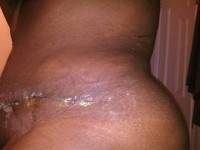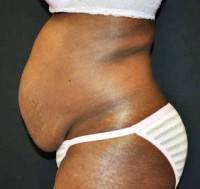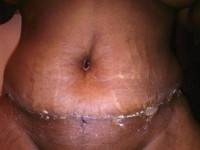Tummy tuck with hysterectomy
Tummy Tuck and Hysterectomy
If your Hysterectomy is being performed for a non-cancerous (benign) condition, it is OK to consider a Tummy Tuck at the time of your OB/GYN procedure.
However, as my colleagues have suggested, if your hysterectomy is for treatment of a cancer, I would not recommend adding an elective cosmetic procedure to your ablative surgery.
In this case, I would make sure your cancer is treated first. Once you are cleared from the oncologic standpoint, you can return for your cosmetic procedures. Your health status must be evaluated thoroughly first. (C. Bob Basu, MD, FACS, Houston Plastic Surgeon)
Gyn surgery and Tummy Tuck
You first must get your GYN medical problems sorted out. Then ask your gynecologist what their plan is and to have the plastic surgeon and gynecologist talk to each other. They will figure out what you best plan is. (Barry E. DiBernardo, MD, Boston Plastic Surgeon)
Tummy tuck can be done at same time as hysterectomy for benign condition
It is not uncommon for a tummy tuck to be done in conjunction with a hysterectomy that is done for fibroids or other benign conditions-but I would not do this if you are being treaqted for a cancer.
This combined approach requires that your Gynecologist agrees and has a good working releationship with your plastic surgeon and they both agree. If your surgeons do not want to do this and your hysterectomy is done for fibroids or otrher benign condition, I would recommend waiting a year before considering a tummy tuck.
I agree with all others that you must frirst complete your work up and follow the advice of your Gynecologist. These issues must be addresssed before any discussion of a tummy tuck. (Brooke R. Seckel, MD, FACS, Los Angeles Plastic Surgeon)
Your health must be assessed before undergoing cosmetic surgery
All patients considering cosmetic surgery for any reason should be in their ideal state of health prior to undergoing any procedure. Cosmetic surgery is a situation where we take people who are healthy and temporarily make them ill, with the anesthetics, post-operative pain, and recuperation involved.
Since cosmetic surgery is not being done to correct any life-threatening condition, it should be done only with the nearly-certain expectation of a healthy recovery. It is imperative that patients should not have any underlying medical conditions that might compromise their recuperation or add an unwarranted risk. Competent plastic surgeons will always properly assess the general health of their patients prior to scheduling surgery.
If there are minor, manageable medical problems such as mild hypertension or diabetes, or moderate risk factors, such as COPD, the surgeon will generally enlist the help of an internist, specialist, or family practitioner to optimize the patient’s medical status before surgery.
Certain other conditions should be red-flag warnings to both the patient and the plastic surgeon that it may be wiser to postpone the plastic surgery until proper diagnosis and treatment can be undertaken, even if this means that the procedure a patient wants is postponed indefinitely. Once a patient has made a full and healthy recovery from a required non-cosmetic surgery, or has taken the appropriate time to bring their underlying general health into proper regulation with any necessary medication, the patient should follow the advice of her regular physicians, working in concert with her plastic surgeon, to determine the advisability and timing of cosmetic surgery.
First thing’s first, always place health over beauty! (Athleo Louis Cambre, MD, Manhattan Plastic Surgeon)
Only Undergo Elective Cosmetic Surgery If You Are Healthy
Undergoing any surgical procedure is a serious decision. Elective cosmetic surgery is exactly that – elective. Under no circumstances should such surgery be performed if it may compromise a patient’s health. If a patient has a medical condition which needs to be treated, that must take priority over any elective cosmetic procedure.
Once the medical condition has been successfully treated and the treating physician provides a clean bill of health, then cosmetic surgery may be considered. There is no magic number of months or years one needs to wait. That is a judgment that needs to be made on an individual basis by the physician treating the medical condition.
That doctor must provide medical clearance to undergo elective cosmetic surgery. Ultimately, waiting until one is in optimal health will result in an optimal outcome of both your medical condition and the elective cosmetic surgery. (Adam Schaffner, MD, FACS, )
I have performed tummy tucks in conjunction with simple…
I have performed tummy tucks in conjunction with simple hysterectomies for non-cancerous surgeries or endometriosis. I would not do it in conjucntion if this is the situation. I would most likely have you wait at least 6 months until you get a “clean bill of health” from your gynecologist. (Steven Wallach, MD, )










